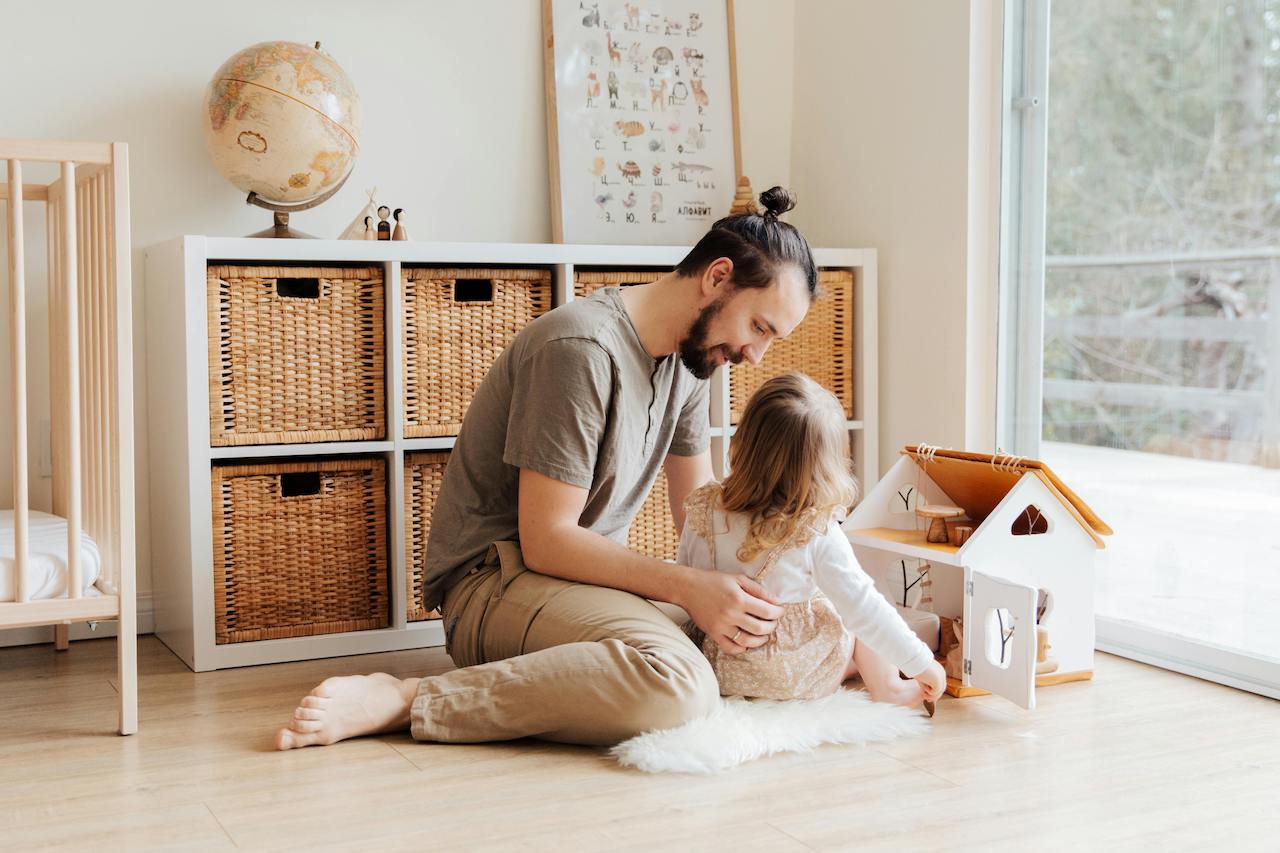As the owner of a babysitting agency, I am disheartened when parents believe the stereotype of male childcare workers as potential sexual predators. Many parents would be surprised to learn that this inaccurate stereotype can actually be harmful to children, and it has negative repercussions for boys in particular. This misinformation prevents parents from understanding the facts about child abuse and diverts us away from effectively ensuring children’s safety. Gender biases do not help parents to make informed decisions.
These are the facts:
Data from the US government’s National Child Abuse and Neglect Data System (NCANDS) (1) and the Department of Health and Human Services (2) reports that in 2020, more than 3.1 million cases of child abuse or neglect were investigated (a decrease from 3.4 million in 2019). Of these 3.1 million cases, 618,000 investigations resulted in a finding of child abuse (a decrease from 656,000 in 2019). These findings revealed:
-
- 77% of the abusers are a parent of the child.
- More than half (52%) of abusers are female.
Of investigations that resulted in a finding of abuse:
- 76% were victims of neglect
- 16.5% were physically abused
- 9.4% were sexually abused
- 0.2% were victims of sex trafficking
Men do not constitute the majority of abusers, and we must recognize the fact that women perpetrate abuse. Our societal practice of extending more trust to women creates a false sense of security which can put children in danger. As the owner of a childcare agency, I ensure that every member of our team, regardless of gender, undergoes a thorough and equal screening process and background check.
According to Dr. Noam Shpanser, Purdue-educated clinical psychologist with The Center for Cognitive and Behavioral Therapy in Columbus, Ohio: “One reason for the absence of men from the caregiver ranks is the traditionalist stereotype (and historical reality) framing childcare as ‘women’s domain.’ The resulting stigma characterizes males in caregiving roles as either unmanly or incompetent. This stigma may drive otherwise qualified and interested men away from the field. Those men who do enter the field become de facto norm violators. As such, they face backlash and suspicion, which in turn may serve to ultimately drive them away, as well. Also, men who enter the field are often perceived as ‘leaders in training’ and are channeled quickly upward into leadership positions.”(3)
It is important for parents to reflect on their perception of childcare as women’s domain. Parents have said things to me that reveal ingrained biases and troubling opinions, such as:
-
- “Why would a guy want to care for kids who aren’t his own kids?”
- “Why would a man with a teaching degree want to babysit?” This one stung because it’s so common for female teachers to babysit.
- “I just don’t think a man is going to really know how to nurture children. Women are just more nurturing.”
- “Babysitting isn’t a real job. Why are men applying to be babysitters, what’s wrong with them that they can’t get a real job?”
One parent said to me that she could not imagine her daughters receiving a diaper change or help getting dressed from any man other than their father. While I attempted to empathize with her perspective, the truth is I found it concerning that she applied a sexual connotation to essential caregiving tasks that are inherently not sexual. Any male member of my team would approach diapering or dressing a child with the same professionalism and respect as female team members.
It is important for children to see individuals who mirror their own gender providing care, which helps to foster healthy gender role development. We are robbing children, especially boys, of a rich community of positive role models. Men bring unique perspectives and skills to the childcare industry, enhancing the overall quality of care. (3) Their experiences and approaches contribute to a diverse and enriching environment for children. If you like visuals, this 2023 TikTok video compilation showcases many of the wonderful ways that men positively impact children.

Parents who decline to work with any male babysitters may convey harmful messages to their children, especially their sons. The absence of male childcare providers can suggest to children that men are not capable of providing safe and competent care, or that childcare is women’s work. Boys are frequently left out of opportunities to babysit and learn to care for children, while girls are typically offered many opportunities to learn and practice. Male children can grow up doubting their ability to be a good father, or even to perceive nurturing children as an “unmanly” trait. This contributes to our societal issue of hailing men as exceptional fathers when they fulfill basic responsibilities, while mothers face added scrutiny and pressure to excel as a parent.
Above all, we have to realize that our young sons are going to grow up to be the men that society labels as potential predators, rather than recognizing them as capable adults who can contribute to children’s lives. Is this what we want for our sons?
To effectively protect children, we must use evidence-based policies and fact-based trainings. This can be achieved through stringent background checks, thorough screening processes, and comprehensive training for everyone working in childcare, regardless of gender. Safety education should extend to parents, other adults in a child’s life, and to children. Here are some simple and lifesaving steps:
-
- Educate yourself on the signs of abuse and the behaviors of adults who are grooming a child for abuse.
- Teach your child not to keep any secrets from you, and to always tell you if someone has asked them to keep a secret…even if that someone is a friend, an adult, or an older child.
- Learn about when to begin talking about body safety and consent. Did you know that you can start teaching your child about body safety and respect from birth? This begins in simple ways, such as talking to your infant about why you are moving their body from the crib to the diaper changing table.
- Teach your child body safety and body autonomy from a young age. Educate2Empower offers wonderful free posters and household toolkits for educating young children including My Body Safety Rules, available in multiple languages.
- Teach your child to ask before they hug or jump on the babysitter, too! I’ve had many experiences meeting a family where their child ran up and hugged my legs or jumped on me. In some cases the child even said, “I love you!” I could see that the child had not learned about body safety which includes asking before we hug others.
- Talk with your child about the babysitter’s role. Let your child know, in advance, if the babysitter will help them take a bath, get dressed, or put on pajamas. Gauge your child’s comfort level about this.
- Let your child know that although the teacher, coach, daycare worker, or babysitter is in charge, this does not mean that the child must do everything the adult says if they feel unsafe. It is ok to say “stop” and it is ok to say, “Wait, I want to ask my parents first.” A trustworthy adult will respect a child’s concerns.
Men make up 50% of the workforce and the demand for childcare is massive. Families face a severe shortage of qualified childcare workers and long waitlists for daycare. By excluding qualified men from caregiving roles, we constrain the pool of potential workers, driving up costs and compromising the quality of care. Recognizing that many men are capable of filling these positions will help to alleviate the shortage and give more families access to affordable care.
An all-female childcare workforce is a disservice to children, adults, and to our society. It would benefit all of us to recognize the important role that men play as children’s caregivers and role models, and to set gender-neutral standards for how we hire and train childcare workers. Understanding the facts around child abuse prevention and dismantling stereotypes is how we truly protect and care for children.
—
If you have concerns that a child you know may be experiencing abuse or neglect please contact the ,Colorado Child Abuse and Neglect Hotline at 844-CO-4-KIDS (844-264-5437). This confidential hotline is staffed by trained child welfare professionals and is open 24/7, 365 days a year.
Citations
1 Child Maltreatment 2020, the Children’s Bureau (Administration on Children, Youth and Families, Administration for Children and Families) of the U.S. Department of Health and Human Services. ,https://www.acf.hhs.gov/sites/default/files/documents/cb/cm2020.pdf,
2 Mandated Reporter, 2022: ,https://mandatedreporter.com/blog/the-state-of-child-abuse-in-2022/,
3 No Man’s Land: Where Are the Male Daycare Caregivers? A Gender-Segregated Caregiving Profession is Not Optimal for Children. Dr. Noam Shpanser, PhD. July 5, 2019. ,https://www.psychologytoday.com/us/blog/insight-therapy/201907/no-mans-land-where-are-the-male-daycare-caregivers




